Gourmet: Episodes 5 & 6
by javabeans
Again, I decided to summarize the episodes briefly, and spend more of my time talking about the food and the themes presented through it. This approach may be how I continue with Gourmet, because to me the highlight isn’t the drama’s plot or even the food porn (mm, food porn), but how well they’re telling these characters’ stories through the food.
In that respect, Episode 5 was more straightforward (not so subtle, I thought), but Episode 6 was a real standout. It got me on a gut level AND a cerebral-analytical level, which is something I really dig.
SONG OF THE DAY
Gourmet OST – “벚꽃지다” (Falling cherry blossoms) by 말로 (Malo) [ Download ]
Audio clip: Adobe Flash Player (version 9 or above) is required to play this audio clip. Download the latest version here. You also need to have JavaScript enabled in your browser.
A note:
Gourmet is doing a very good job on most of its fronts, but I would be remiss if I didn’t point out the embarrassing foreigner and English-speaking portions. Oonamjeong Restaurant supposedly attracts the highest levels of foreign visitors — ambassadors, dignitaries, important international businessmen. But the Korean actors generally speak atrocious English (sometimes unintelligible), and the non-Korean actors have obviously been cast not for their abilities but for their non-Korean looks. Thankfully, these portions are brief, and I’ve taken to muting them and reading the subtitles instead, so they don’t bother me so much. But I’m pointing this out in case these bits stop you from continuing, because it’s worth it to just skip or power through the awkwardness rather than dismissing the drama out of hand.
EPISODE 5, IN BRIEF
Episode 5 mostly takes place a month after Sung-chan has left home. Immediately after his departure, it’s presumed that Bong-joo will be named the Oonamjeong successor, but Chef Oh insists upon waiting for Sung-chan’s return to continue the final challenge. That disappoints Bong-joo and infuriates Joo-hee’s father (I’ll call him Director Yoon — he, Chef Oh and the eccentric fortune-telling Ja-woon are the three administrative heads of Oonamjeong).
Joo-hee is the most affected by Sung-chan’s abrupt disappearance, and continues searching for him futilely; she can’t understand why Bong-joo seems unworried. (Her romantic feelings are also clarified — she was raised alongside the brothers, and perhaps because of Bong-joo’s interest in her, it’s assumed she’d marry him although she hadn’t encouraged Bong-joo. She’s harbored feelings for Sung-chan but hasn’t shown them outwardly, probably to avoid creating brotherly conflict.)
The challenge of the day: to impress a world-famous Korean-American food critic, Ted Oh. A good review could cement Oonamjeong’s reputation, while a bad one could crush them. The ace in their pocket? Jin-soo shares a taxi with him and argues with the cab driver on his behalf, thus amusing and impressing him with her pluck (without knowing who he is, naturally).
The staff goes out of their way to wow Ted Oh and give him the superstar treatment. He’s duly impressed, but has one trick up his sleeve — he’s sent his assistant to dine in the main restaurant to gauge its everyday service. The man is instructed to be picky, which sends one of the chefs into an apoplectic fit — he explodes at the customer just as Ted Oh reveals the connection. The restaurant is horrified at their lapse, and Ted Oh says it’s a shame because he would otherwise have given them a perfect rating. Jin-soo sees a tiny window of opportunity as Ted Oh is leaving, and steps in with a proposal: If she can make up for their lost points, will he restore his perfect rating?
She recalls Ted Oh’s comments from the taxi — he’d driven the cab driver crazy with demands to go from one place to another in search of a particular dish. Using those details, they narrow down the dish he’s searching for — a simple budaechigae (I’ll discuss below) — which turns out to be exactly what he was searching for.
Life continues, and under Bong-joo’s leadership, the restaurant prepares to expand, aiming for international status with a full-service resort and casino in China. We jump 1 year later, as construction gets under way. And finally, we see Sung-chan! He’s become a traveling grocer, picking out the best local ingredients and selling them out of a truck.
EPISODE 6, IN BRIEF
Sung-chan has managed to scrape out a humble life selling vegetables and other foodstuffs out of his truck. Ajummas love him, and he has a wonderfully upbeat attitude, but in small, quiet moments his loneliness becomes apparent. He doesn’t wallow in self-pity, but it’s a little heartbreaking to see him approach his life with good cheer when we all think of what could have been.
Jin-soo is now a bona fide taste columnist for a food magazine, and accompanies Bong-joo on a working trip when he is put in charge of a special reception for an important CEO, Mr. Jang. Bong-joo travels the pier looking for his special ingredient, a rare, premium snow crab. He’s dissatisfied with the offerings, and scours the area to no avail.
Sung-chan pays a visit to the aging knifemaker, who has sunk into drunken stupor since the last time he saw him. Alarmed and concerned, Sung-chan tends to the man and cooks for him, preventing the sickly man from leaving his house in search of the seasonal premium snow crab. The knifemaker is insistent on going — he knows he doesn’t have long to live, and he must get the crab for his son’s birthday, as it may be the last time he sees him — so the only way Sung-chan can convince him to stay home is to offer to go in his place. Thus he runs into Jin-soo just as they both find the crab, and asks her not to mention seeing him.
Sung-chan and Jin-soo both return with their items. Bong-joo prepares a lavish spread, while Sung-chan prepares a simple, traditional seasoned crab dish for the man’s visit to his son — in prison. Sung-chan is stymied at the prison desk, however, who won’t allow him to take in the food, and resorts to calling in a favor from Jin-soo, who gets her boss to pull some strings.
The son is clearly bitter at the old man, who openly admits he’s been a lousy father. He refuses to eat the food and tells the father to leave, forcing Sung-chan to intervene, revealing that his father’s dying of stomach cancer. Overwhelmed with conflicting emotions, the son sits back down and eats, telling his father that the crab dish tastes as good as the kind his mother used to make.
Jin-soo tells Sung-chan that no matter how he may try to deny it, he’s a born chef, and seems confident that he’ll return to cooking. The knifemaker is of the same opinion, telling him with calm certainty that the day will come when he will hold a knife again. His returns to his abandoned workroom, making Sung-chan another knife.
Now that he knows his father’s condition, the knifemaker’s son calls Oonamjeong and tells Chef Oh, asking for help. Chef Oh hurries to the hospital to see his old friend, feeling regret that he hadn’t known about his condition — and is filled with hope when the knifemaker tells him of all that Sung-chan had done for him, taking him to meet his son and checking him into the hopsital. He and Joo-hee eagerly anticipate Sung-chan’s arrival, but Sung-chan sees them first and ducks away in panic. In his haste to leave, he nearly hits a car — driven by his brother.
FOOD FOR THOUGHT
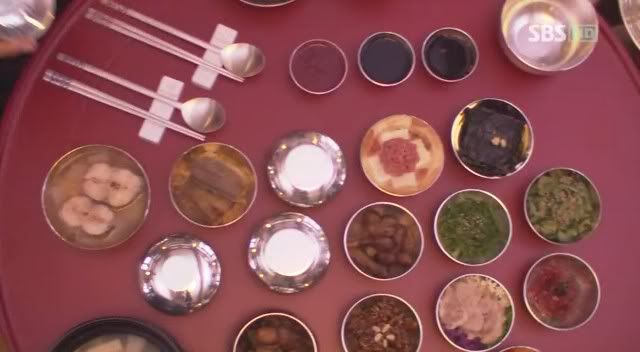
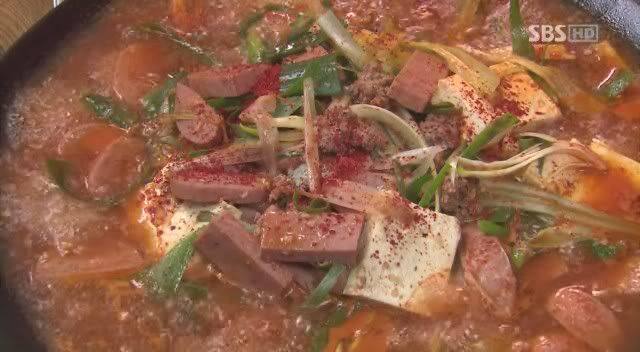
Oonamjeong’s refinement versus budaechigae
Both episodes dealt with similar themes — contrasting haute refinement with simple, from-the-heart food — but in different ways (and, in my opinion, with differing levels of success).
First, Ted Oh. As a Korean adoptee to America, the dish he’s searching for is a remnant of his childhood, before his mother died and he was adopted. All his life, he’d been searching for the taste of his mother’s budaechigae, which was so good the smell of it would draw all the neighborhood boys to his house for a taste.
Budaechigae is a simple sort of soup/stew popularized after the war which uses humble ingredients like ham (or more commonly, Spam). It’s similar to the everyday chigae (a bean-paste based soup akin to a really hearty, often spicy miso soup) but comes with more historical strings attached — it originated as a dish made by scavenging ingredients discarded by the U.S. Army by a starving populace (budaechigae literally means “army soup”). Therefore you can see how it’s not exactly on par with the fancy-dancy world of Oonamjeong’s offerings, but became an emotionally comforting experience for an orphan who parted ways with both his mother and his mother country.
Ted Oh explains that his search for this taste is probably why he became a food critic in the first place, and despite continued efforts to find it, he’d despaired of ever tasting it again. The reason he was unable to pinpoint the exact flavor is explained by Bong-joo, who realizes that the dish has undergone some changes from its original incarnation, thus making today’s budaechigae differ in taste. Jin-soo and Bong-joo narrow down the neighborhood of his childhood and order the dish made more in the style of the 1950s version, for instance removing the ramen noodles because ramen hadn’t existed back then.
The point is clear: Oonamjeong’s elegant fare impresses his palate, but the lowly budaechigae soothes his soul. They’re not arguing that simple food is as accomplished or impressive as the elegant royal-style gourmet food served at Oonamjeong, but rather showing the value of each.
Now, I felt this message was a bit heavy-handed in Episode 5. I appreciate the way they worked in the point into the story, but I was far more impressed by Episode 6.

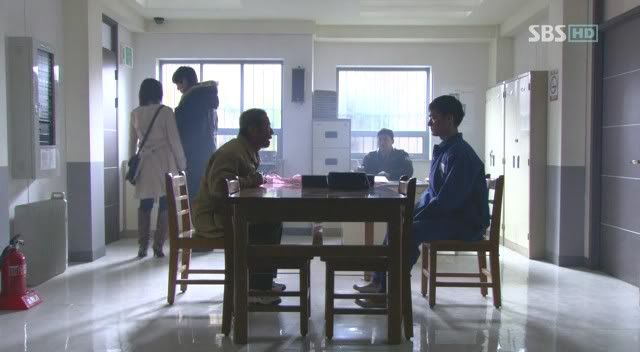
One VIP reception, and another not-so-VIP one
In this story, the correlations are finer, more nuanced, and therefore more touching to me.
I’m particularly struck by the juxtaposition of how these crabs are used by both brothers. One chef is desperately searching for a top-shelf ingredient for a special event celebrating the most VIP of VIPs. He wants premium ingredients because anything less would not befit such a fine occasion. Nothing wrong with that, of course, but the other chef is equally determined to find these crabs for the dying wish of a poor, lonely man who wants to eat them one last time with his estranged son.
What I like is that both goals are treated as important — we don’t get a simplistic message that fine food (or simple) is more worthwhile than the other. Neither chef is treated as cooking for a more important recipient than the other. Cooking a rustic, traditional meal for a dying man and his son is just as significant as the five-course spread put forth by the master gourmet chef.
The dish Sung-chan makes is a simple kye-jang — raw crab marinated in the shell with a spicy red sauce (made of gochujang and other seasonings). It doesn’t even explicitly require premium crab (one might even consider it a waste of an expensive ingredient). But Sung-chan puts so much effort into finding the crab, and never once does he decide to “settle” for inferior product or even consider foisting off lesser goods to the old man.
He also refuses to give up when he’s stopped at the prison desk, doing what he can to get the food to the son. Then, once he gets there, he has to deal with someone who doesn’t even WANT it. When you’re in that prison room with the angry son who refuses to eat that crab, after all that our characters have done to get it there, the mere act of that son eating becomes symbolic of much more than just eating.
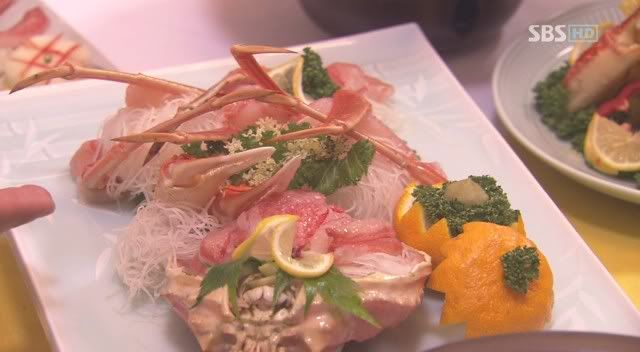
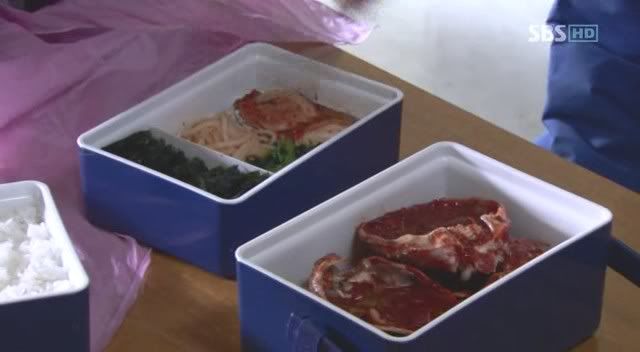
Fancy crab sashimi, simple marinated crab
This story is all about food, and yet it’s not at all about food — that food represents so damn much. It’s forgiveness for the father, acceptance for the son.
So once again, these characters’ attitudes toward cooking give us insight into their worldviews as well, and if Sung-chan ever rejoins the successorship competition, this is why he will most likely win. Because he’s never completely satisfied with the food until it provokes that emotional connection, that “Aha!” moment. (This is so beautifully indicative of Sung-chan’s character, and the writer gets that point across so clearly, yet with subtlety.)
That isn’t to say Bong-joo had it easy, but one gets the sense he wouldn’t have gone through so much to achieve his goal. Consider his budding franchise: Chef Oh is opposed to expansion because they will lose control of the actual food in their new resort location. Bong-joo is willing to sacrifice the immediacy of personal cooking to build his franchise. I wouldn’t say he’s being selfishly ambitious, because he’s not out for personal glory. But in his eagerness to make a name for Korean haute cuisine on the elite world-class stage, he’s willing to compromise. The moment he steps out of the kitchen, is he losing his claim to all these abovementioned emotional connections that food creates? Sung-chan’s goal in cooking is to provide the diner with a sense of personal satisfaction; Bong-joo’s is more ambitious but also more impersonal.
This brings to mind an interesting question: How important is it to preserve tradition, and how important is it to give up tradition to evolve something into modernity?
It seems the drama is tilting in favor of small, personal, humanistic, and traditional. But there’s always the danger of becoming glued to tradition for tradition’s sake, and I’m sure we can all see how that wouldn’t be ideal, either. Progress is good — but what constitutes “good” progress and what constitutes “not worth the sacrifice”?
RELATED POSTS
Tags: Gourmet, Kim Rae-won, Nam Sang-mi
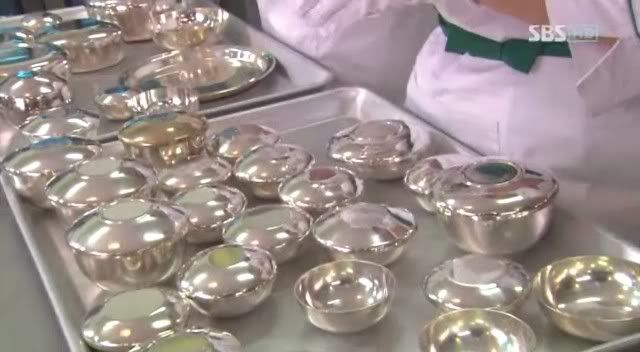
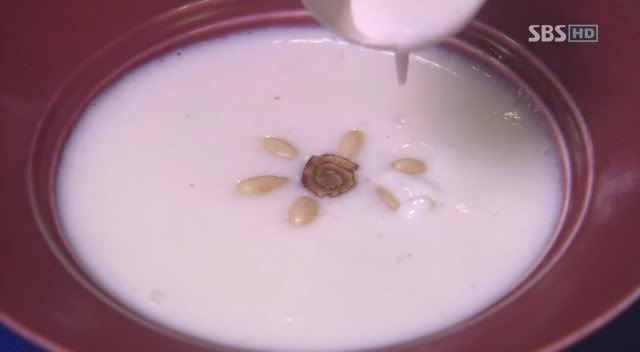
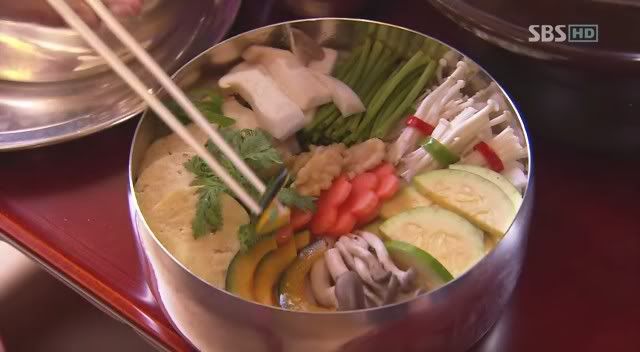
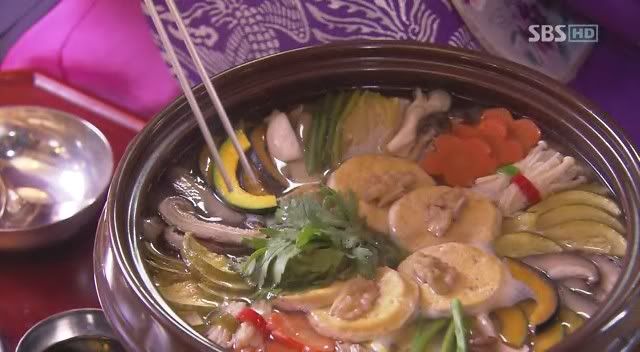
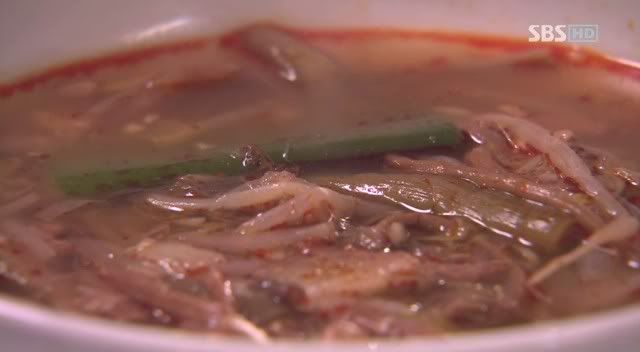

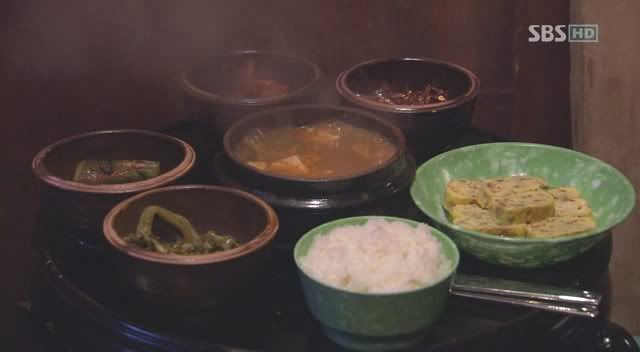
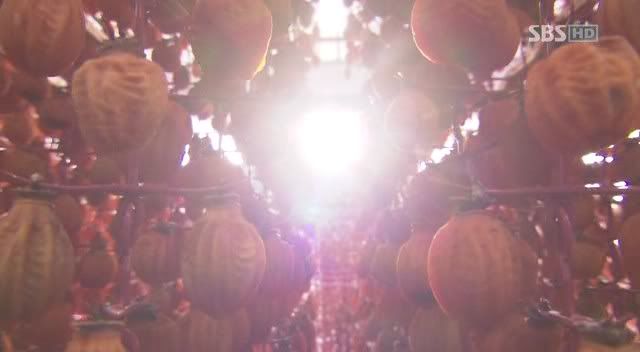
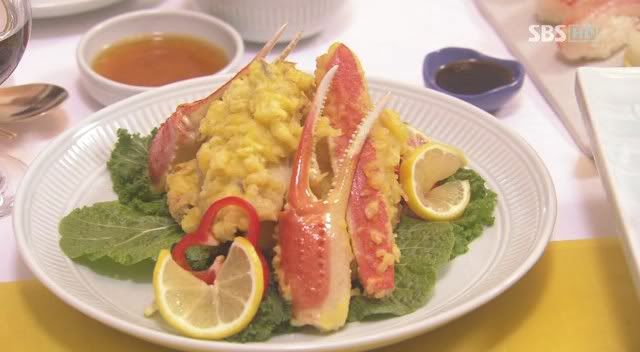
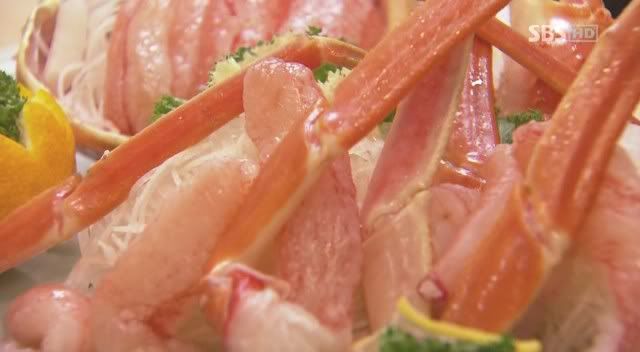
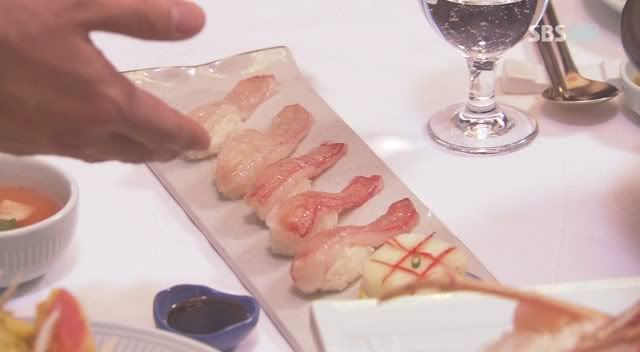
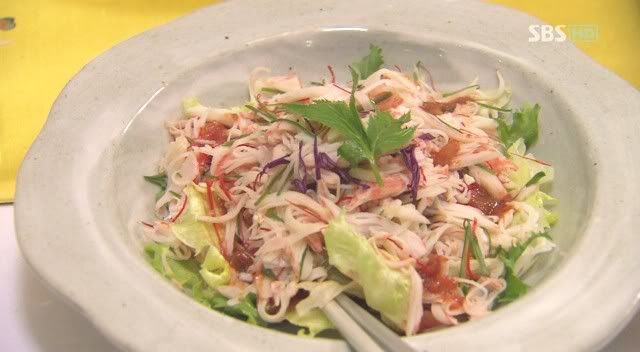
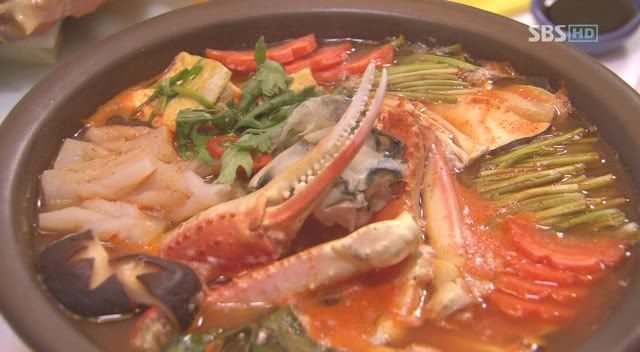
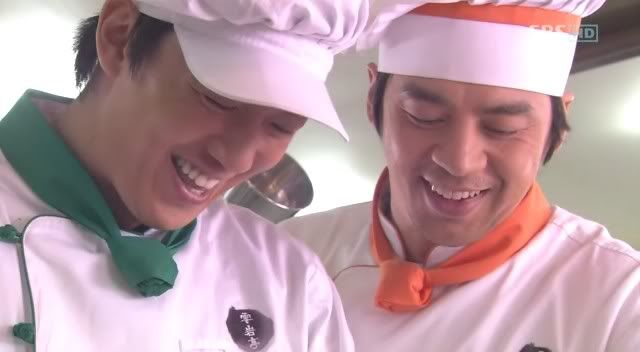

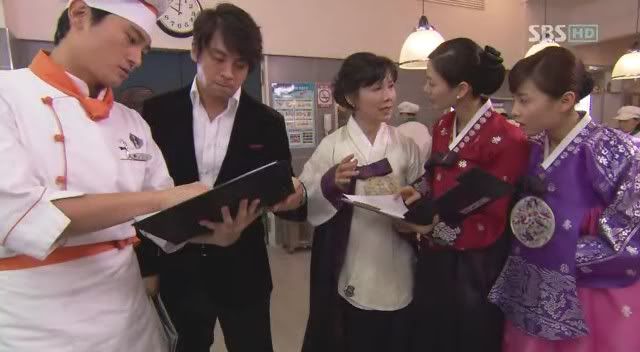
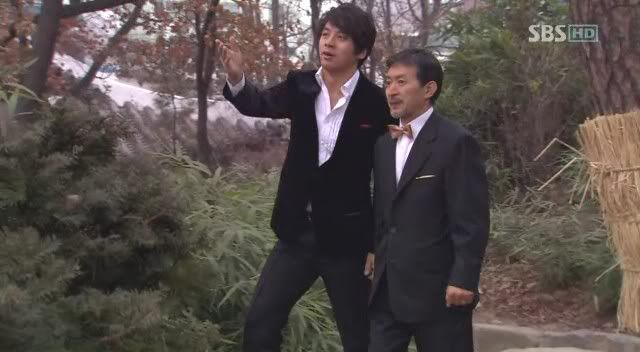

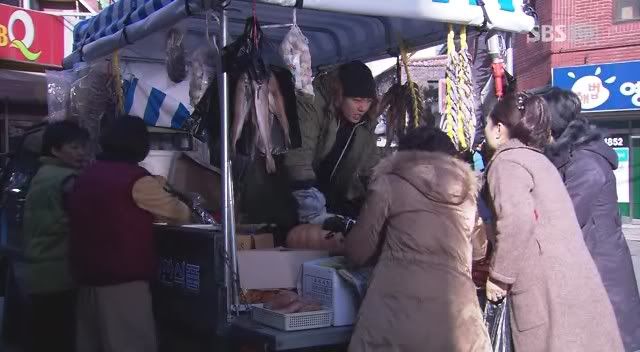

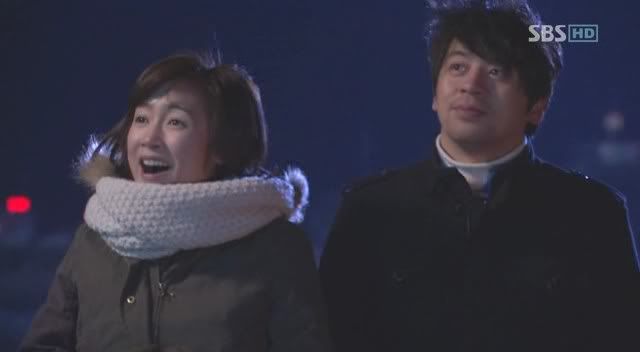

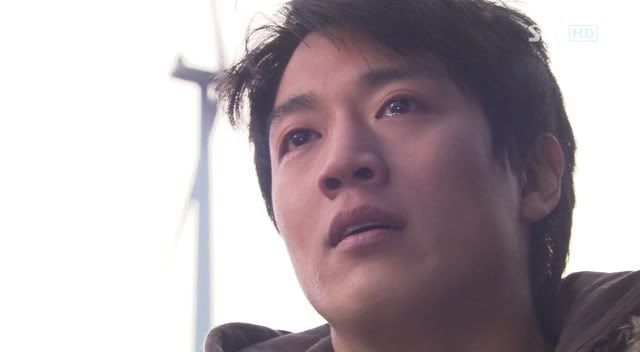
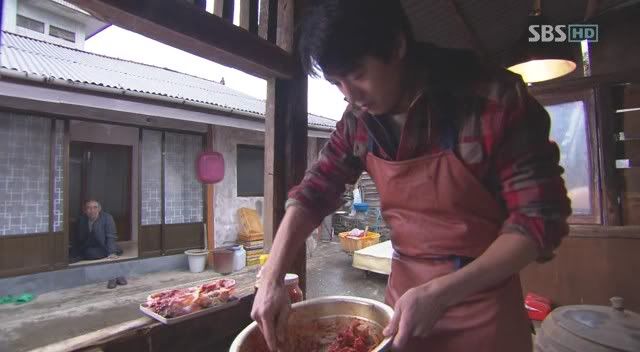

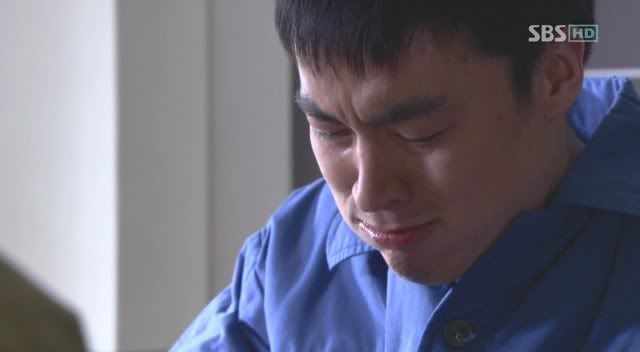
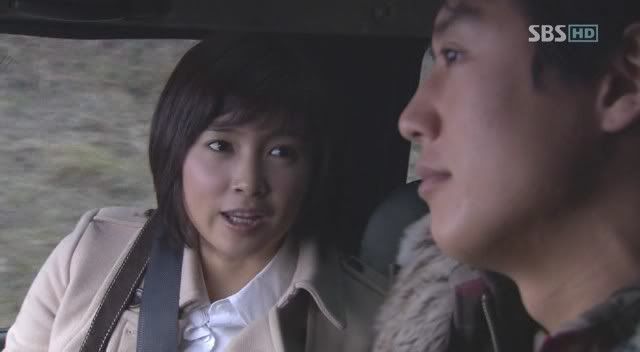
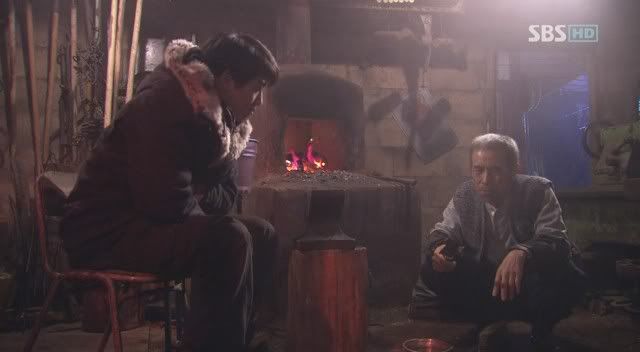

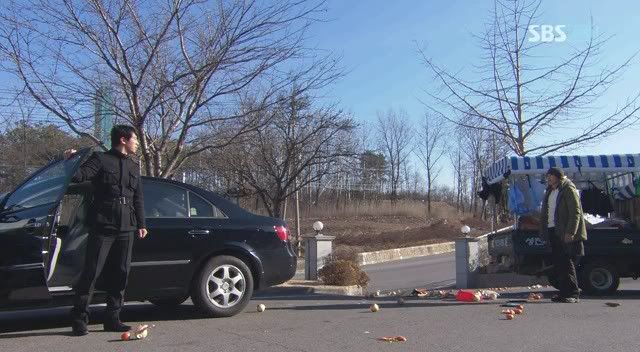
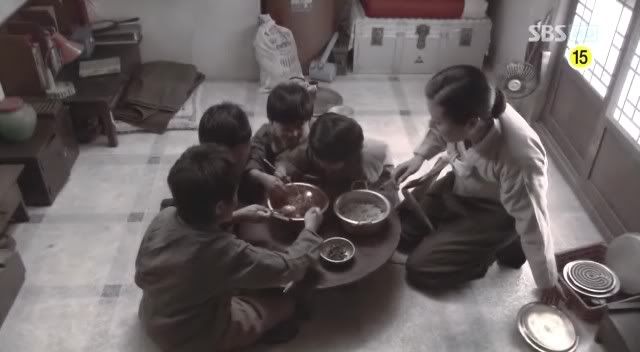
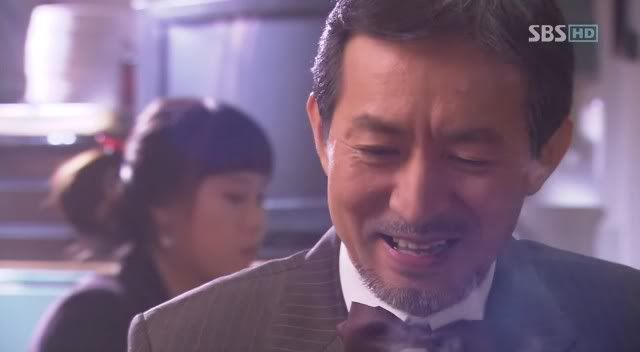
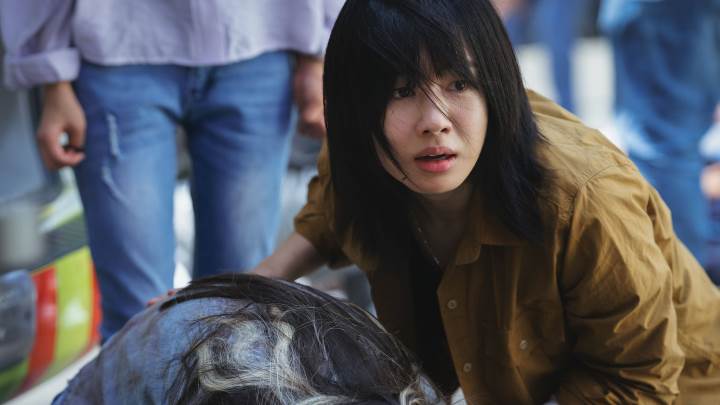

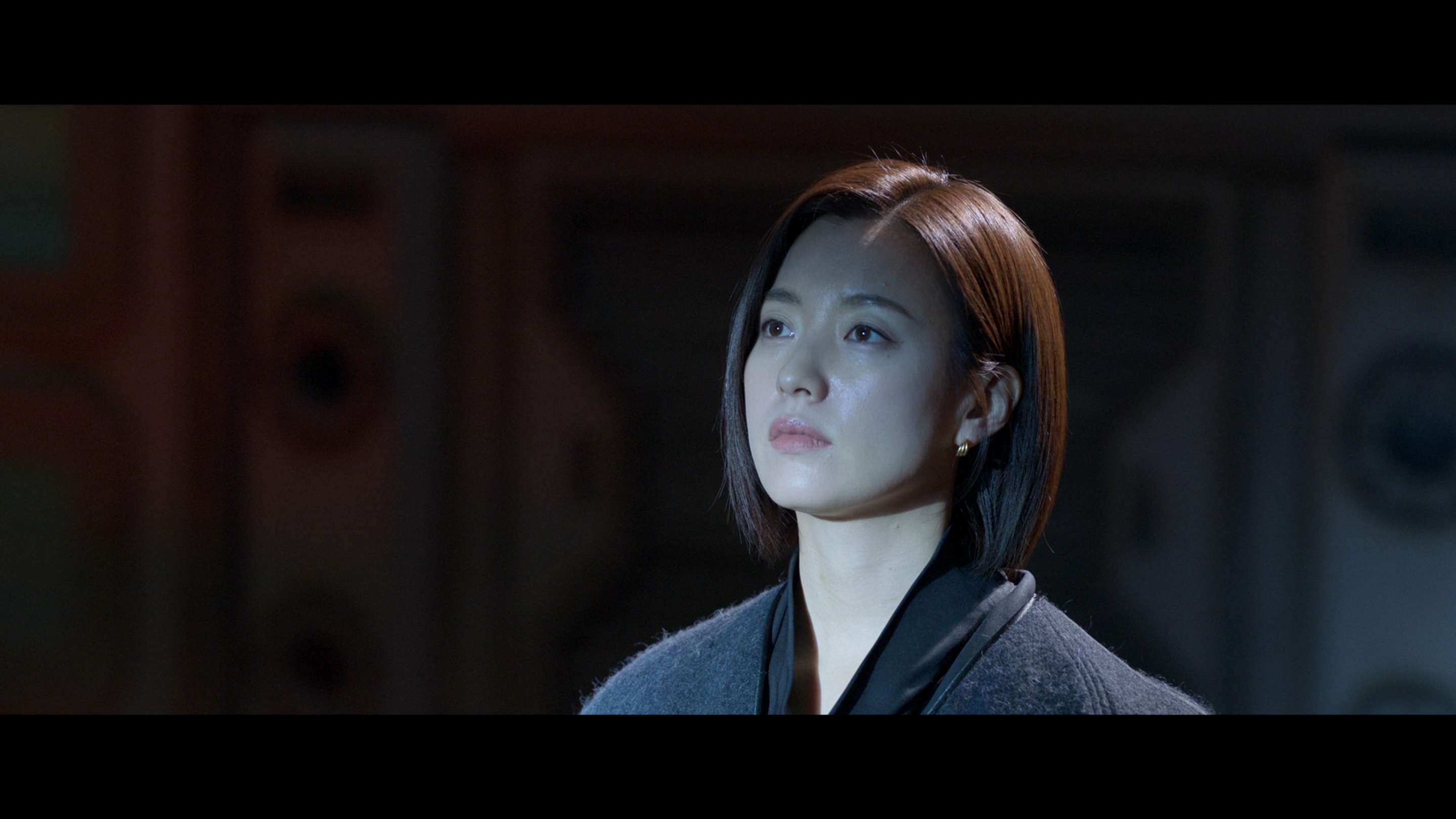
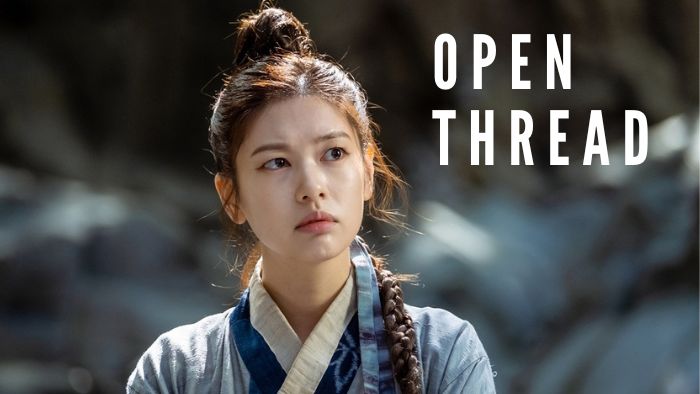
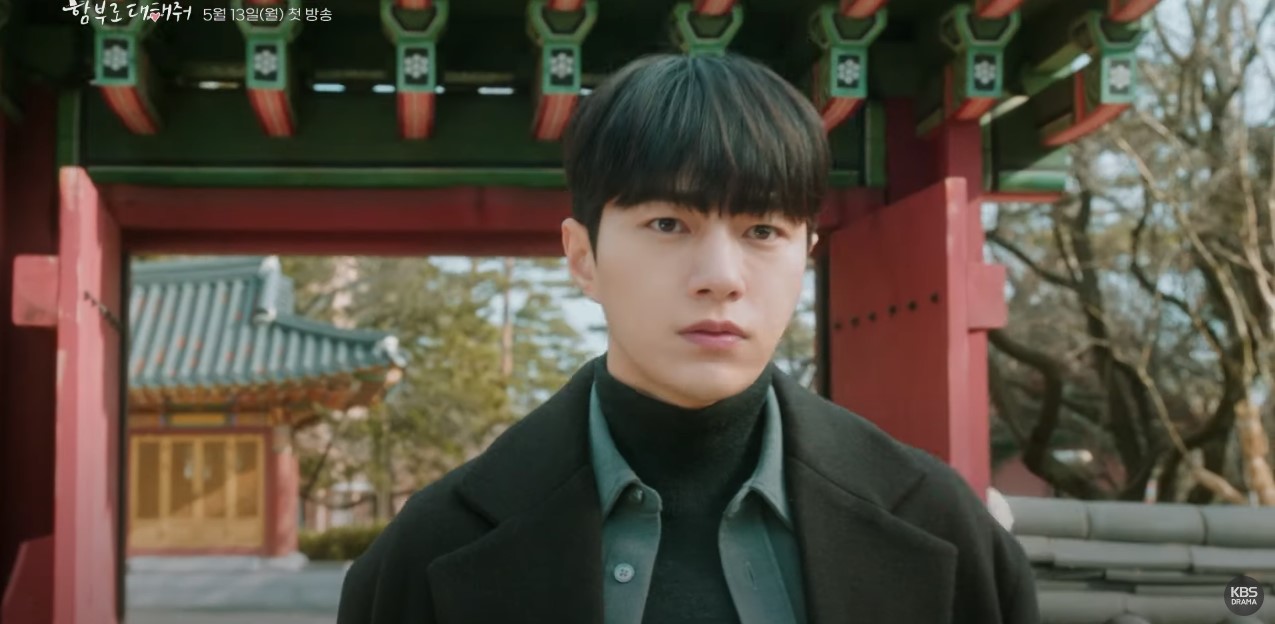
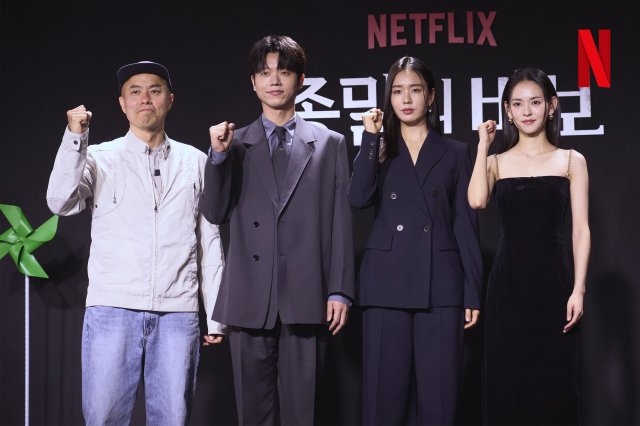



![[K-drama Treasure Hunt] Heart-fluttery bottle opening](http://d263ao8qih4miy.cloudfront.net/wp-content/uploads/2023/05/Kdrama-treasure-hunt.png)
Required fields are marked *
Your email address will not be published. Required fields are marked *
1 fizzlex3mh
July 10, 2008 at 4:51 PM
Ohmygoodness.....so much FOOD!
-wipes drool-
I can't wait to start watching Gourmet.
Required fields are marked *
2
July 10, 2008 at 5:03 PM
I think you make some very interesting points about where this drama is going on a deeper level. At some point, the two different styles must clash, because you must trade in some more basic, simpler quality for the sake of greater fame and fortune and to match the popular style. This story makes me realize that this clash and this process of compromise and change is surprisingly very apparent in the culture of food, which isn't the first place you expect it. Food in any country changes continuously, but when it changes to accomodate a different culture, or for popularity rather than to hold on to its original flavors, a significant compromise has been made and it can be questioned if this compromise is worthwhile. Looking at the patterns of how a dish has been changed in a country could very well point out so many characteristics about its people and traditions and its desire for progress.
And that can apply to so many other aspects of any culture, business, and social life. Is it possible to have any kind of harmony? Can we maintain our older values (flavors and scents and textures) and not customize them to suit the modern palate, or lose them in the eagerness to modernize? Its akin to the struggle of so many Eastern cultures to adopt all things Western, positive or negative, in their desire and rush to be at the same level, to perhaps imitate the same kind of lifestyle and higher standard. In the process, so many traditions and qualities are sacrificed....even the food is barely comparable to what it once used to be...and yet, it is not easy to calculate the subjective net worth. For the VIP guy, the simple snow crabs may have been outrage, and vice versa, the son would have found no comfort, only pretense, in the fancy crabs.
So where does the balance lie? Lets see where Gourmet takes it. Bong Joo and Sung Chan both have their qualities and their different styles, but I hope one won't be labeled as 'bad, bad capitalism' and the other as the pure good way to true food nirvana! I'd like the story to be more grey, because there's valid points on both sides.
Thanks for your views!
Required fields are marked *
3 docmitasha
July 10, 2008 at 5:08 PM
Oops: the last anon is me! And the food looks so yum! I can't get over the colors and designs! Make me want to take a culinary course. Thanks for the screenshots!
Required fields are marked *
4 Skangrrl
July 10, 2008 at 5:52 PM
Very well written and thought out insight. Especially relevant as I have always been caught between the two areas of thought and it is a constant battle even till today. Another drama which made me ponder this was Hwang Jini (not the movie!) when the perspective went to bringing dance to a form that everyman can identify with and appreciate versus the pursuit of artistic and intellectual perfection.
Thanks for always making me think, Java.
Required fields are marked *
5 bambooshoots
July 10, 2008 at 6:15 PM
I am IN LOVE with the term "food porn." XD
Thanks for summarizing and explaining the Gourmet epiosdes. I can't wait till someone subs them =]
Required fields are marked *
6 teokong
July 10, 2008 at 7:13 PM
Enjoy reading your insight on Gourmet and the brief summary of each episode. The presentation and colors of the food is fantastic. Definitely have to visit S Korea to taste the food and the culture. :-))
Required fields are marked *
7 sarah
July 10, 2008 at 7:43 PM
whoaa ... nice review.
didn't notice the 2 different perspective on ep 6 when i watched them.
Required fields are marked *
8 rocketfuel
July 10, 2008 at 8:15 PM
mmm....budaechigae.....maybe this weekend.
Required fields are marked *
9 all4movies
July 10, 2008 at 9:40 PM
Thanks for your informative summaries, Compared to other sites, yours are always well written and thought provoking. Now I want to watch Gourmet just because of your writings.
Required fields are marked *
10 Auntiemame
July 10, 2008 at 10:13 PM
It is so interesting to hear stories about a cuisine's origins and the subsequent evolutions.
I totally agree with your comments. Although, I do think there is one slight difference, in intention, between the crab dishes. Bong Jo's dish was made with the intent to impress someone. Sung Chan's dish was not.
As usual, love your recaps, summaries and insights. Thank you always.
Required fields are marked *
11 nileey
July 11, 2008 at 5:11 AM
wow, great write-up and those pictures are making me hungry! Perhaps it's just me, or what you've described of Ted Oh sounds like Anton Ego from Ratatouille.
Required fields are marked *
12 Magichouse
July 11, 2008 at 7:00 AM
awesome post,
i knew the food used would have symbolic links, but never really got what. thanks you for detailing exactly that, makes me enjoy this drama even more so now.
Required fields are marked *
13 annie
July 11, 2008 at 12:43 PM
:)
porn make people lose weight? too horny to think of food.
but this other side of porn "food " will makes poeple gainning weight.
I'm hungry just by looking at the picture.
Required fields are marked *
14 MyMindThinks
July 12, 2008 at 3:22 PM
I tell ya that Gourmet show makes me want to eat, eat and then eat some more
Required fields are marked *
15 Ariel
July 26, 2008 at 6:20 PM
I like your description of Gourmet and I can't wait to watch it. I've been going to your blog regularly although I don't write as often. I've watched all your recommended drama and some that you didn't recommend. I'm also watching drama collaboration (with Japanese). Interesting watch.
Required fields are marked *
16
December 2, 2008 at 8:50 AM
Very well said. I love your views. Keep it up! ^_^
Required fields are marked *
17 miss_dian
April 11, 2009 at 3:40 PM
Javabeans, the link for the song "Falling cherry blossoms" doesn't work anymore. Would it be possible to fix it? Thanks so much in advance. Love your recaps ;-) Appreciate all the hard work!
Required fields are marked *